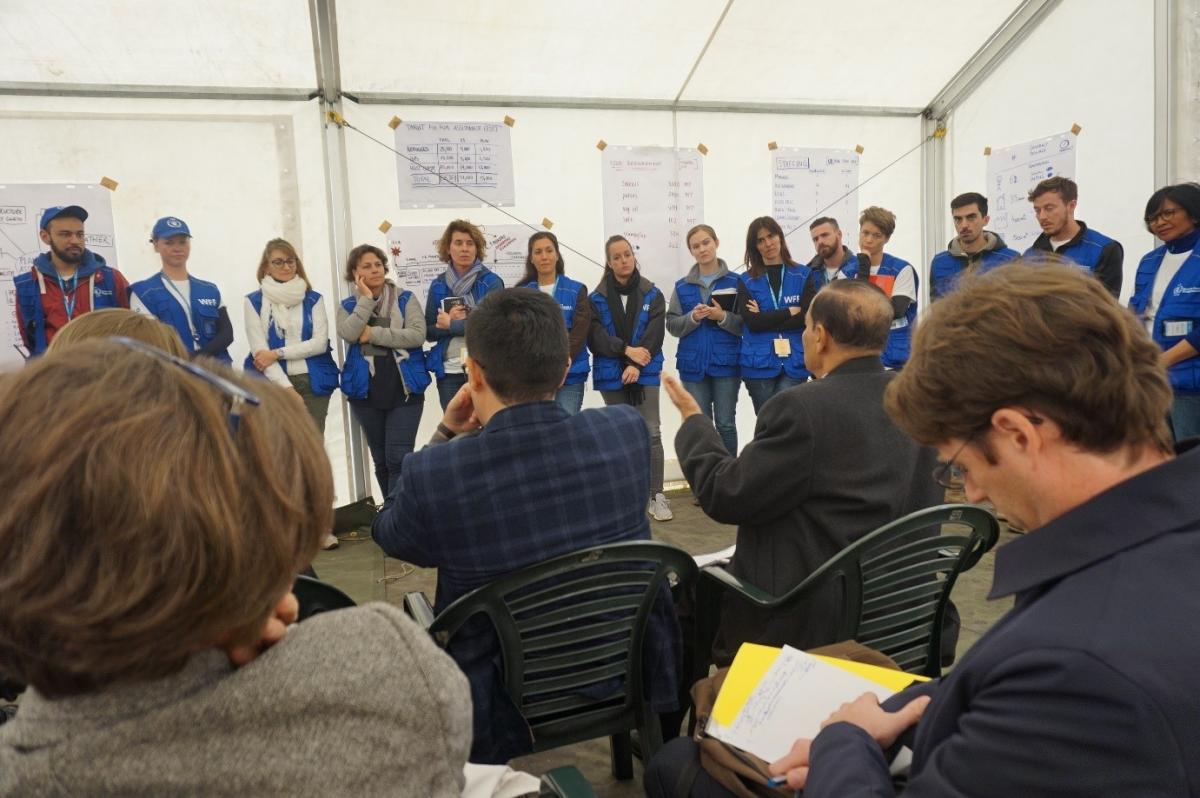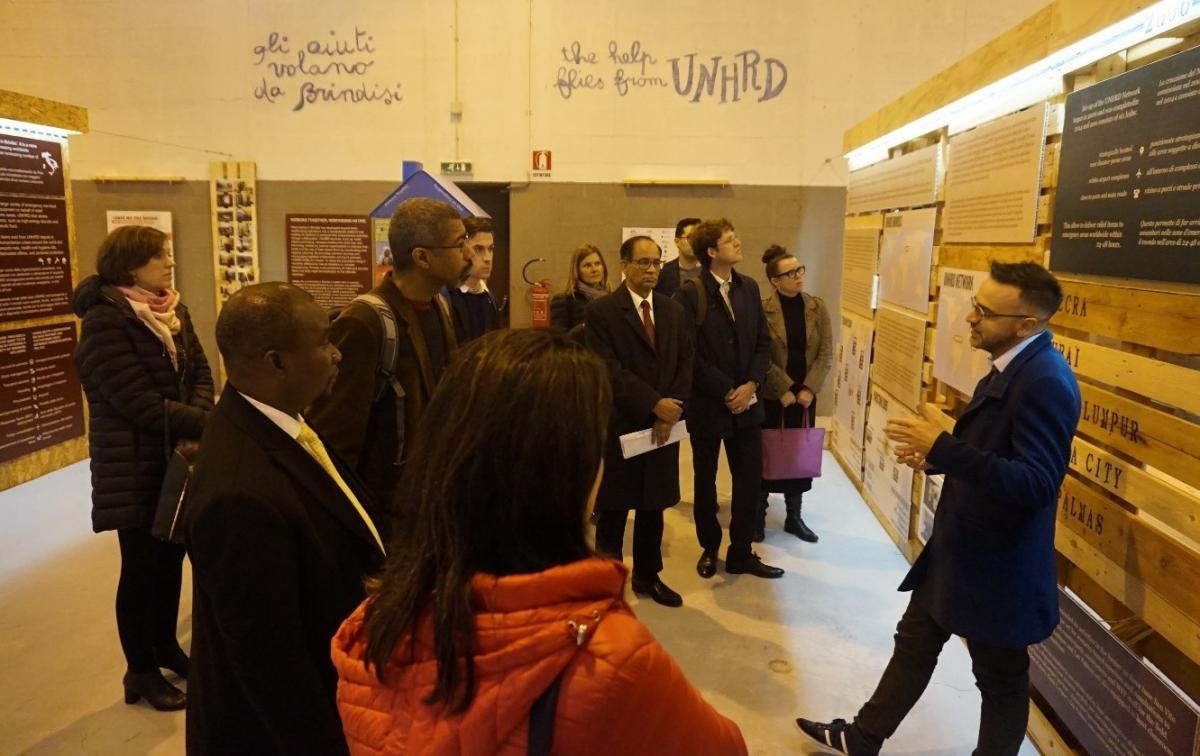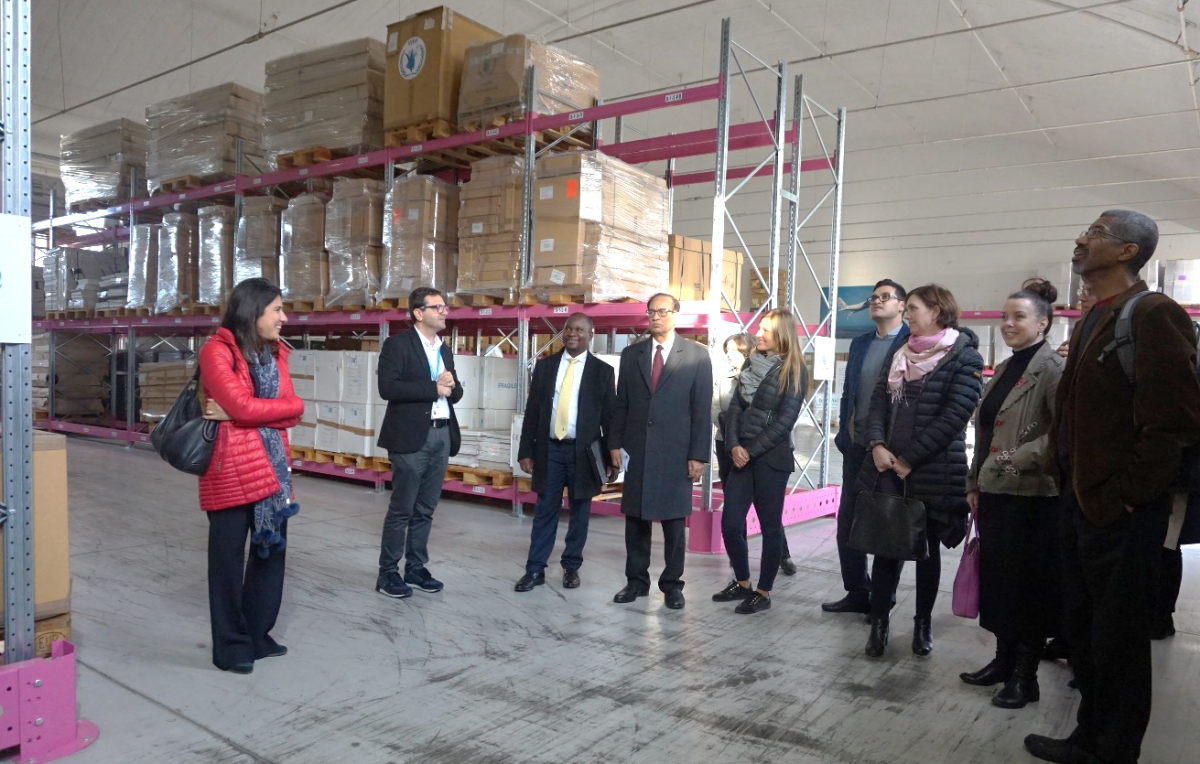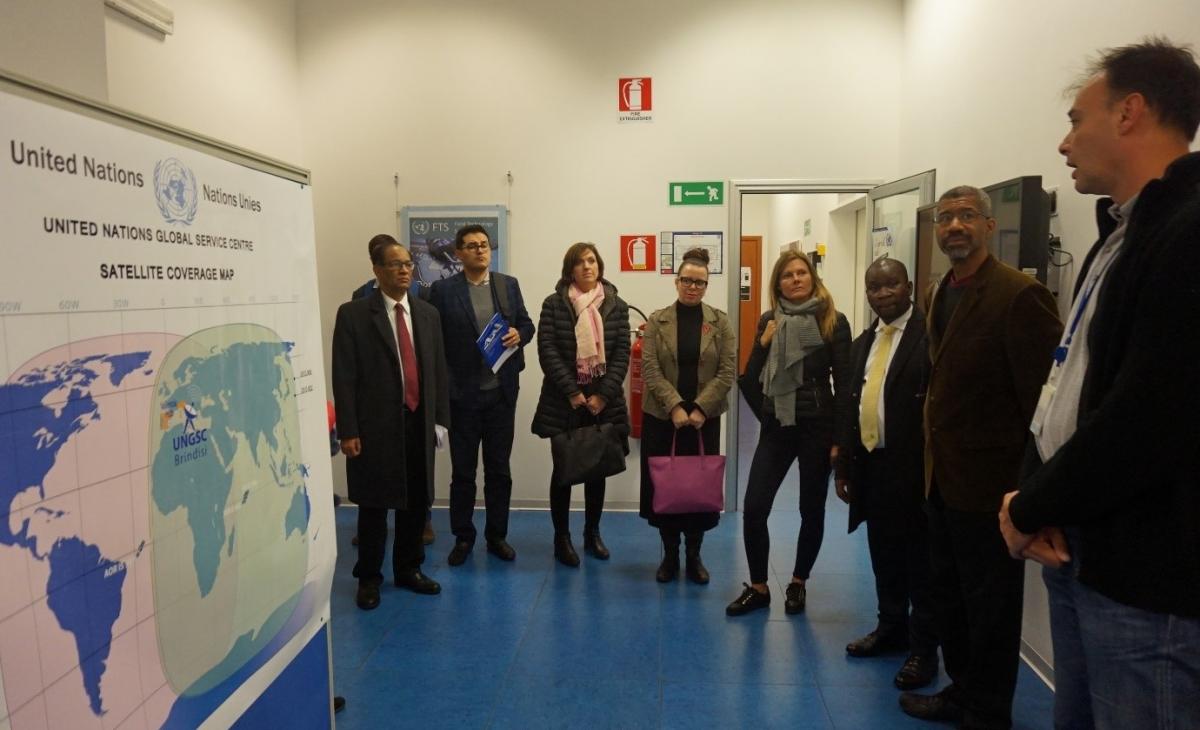On 16 November 2018, an Executive Board delegation had the opportunity to visit the United Nations Humanitarian Response Depot (UNHRD) and its Innovation Lab in Brindisi, Italy. The representatives joined in on a simulation exercise for the Functional and Support Training for Emergency Response (FASTER) which had been taking place throughout the week. Playing the role of diplomatic missions in the fictitious country of Saribo affected by a sudden onset emergency, they challenged the training participants who acted as an assessment team sent by the Regional Bureau to conduct a fact-finding mission.

Executive Board delegation questioning the FASTER participants. Photo: WFP/Sarah Colbourne
In the so-called “UNHRD museum”, the delegates learned about the history of the facilities which came into being in the year 2000. Today, the global UNHRD network also includes bases in Africa, the Middle East, South East Asia and Latin America, and works with 88 partners worldwide.

Learning about the worldwide UNHRD network. Photo: Sarah Colbourne
A tour of the UNHRD warehouse in Brindisi illustrated the storage and delivery processes of prepositioned relief items to facilitate humanitarian emergency response.

Admiring the well-organized UNHRD warehouse. Photo: WFP/Sarah Colbourne
At the UNHRD Innovation Lab, research and development focus on providing innovative yet practical solutions common in emergency settings, such as purifying polluted water, designing family-friendly shelters, and enhancing the effectiveness and sustainability of relief items.

Discovering innovative solutions to common problems in emergencies. Photo: WFP/Sarah Colbourne
In the course of the afternoon, the visitors then stopped at the United Nations Global Service Centre (UNGSC) located near the airport. Its hubs in Brindisi and Valencia, Spain, support peacekeeping and special political missions around the world through critical logistics, geospatial, information and telecommunications technologies services as well as training. During a tour of the premises, the Board delegation learned about the various services and admired the impressive data storage and processing facilities.

Listening to explanations of critical UNGSC services. Photo: WFP/Sarah Colbourne
- By Sarah Colbourne, Executive Board Officer, Rome
Italian press release: https://docs.wfp.org/api/documents/WFP-0000101133/download/
English translation of press release: https://docs.wfp.org/api/documents/WFP-0000101134/download/
